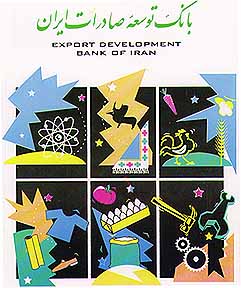

![]()
From a paper by Dr. Marvin Zonis titled "United States Economic Coercion of Iran" delivered at the "Iran in Transition" conference organized by the Petro-Hunt Corporation in Dallas in May 1996.
 U.S. economic coercion against Iran must be understood in the context of
a large number of general U.S. aims and specific U.S. goals. While the obvious
goals of economic coercion are not being fulfilled, many other U.S. goals
are being realized in the process.
U.S. economic coercion against Iran must be understood in the context of
a large number of general U.S. aims and specific U.S. goals. While the obvious
goals of economic coercion are not being fulfilled, many other U.S. goals
are being realized in the process.
As a result, the economic coercion policy is likely to remain in force. If the U.S. has failed to accomplish its obvious goals toward Iran with the policy, does the accomplishment of other U.S. goals justify any additional hardship which U.S. policies have inflicted on the Iranian people?
The costs to Iran of U.S. economic coercion has been immense. These costs include the following:
1. Depreciation of the Iranian rial. Iranians, fearful of the consequences of U.S. economic coercion and anticipating a further economic faltering in Iran coupled with high inflation, have fled their currency, converting their rials into foreign exchange as soon as possible. As a result, the value of the rial has plunged against the dollar. Imports and foreign travel have become more expensive for Iranians.
2. Inability to acquire advanced technology for the transformation of the Iranian oil industry. U.S. firms control the supply of the most modern energy technology which has effectively been barred from Iran by the U.S. trade embargo.
3. Even before the recent tightening of the sanctions, Iran's petroleum industry suffered because the U.S. was able to deter investment by U.S. and even by some non-U.S. oil firms. The coercion has been effective because many non-U.S. firms have chosen to more or less abide by the sanctions.
4. Iran has not been especially receptive to foreign investment. But the U.S. economic coercion measures have served as a powerful deterrent to foreign firms contemplating longer term investments in Iran.
POSSIBILITIES FOR SUCCESS
For several reasons, the chances for the U.S. achieving many of its explicit goals seem minuscule, at best:
Iran's clerics have developed splits but the regime has remained essentially unified under the direction of the so-called Supreme religious Leader. The clerics have been able to use the enmity of the U.S. as a means for building domestic political support and to portray itself as a martyr to "The Great Satan," always an appealing position in Iranian culture.
The regime, of course, has not hesitated to use the reality of U.S. economic coercion to explain its shaky economic position, in the process avoiding the blame it so richly deserves for its primitive and inept economic policies.
Nor has Iran appeared to change any of its more radical foreign policies. The Germans have finally decided that the Iranian state is responsible for the murder of Kurdish leaders in Berlin. The continuing murder of Iranian leaders in exile is well known.
Iranian training of Bosnian hit squads determined to murder Bosnian Muslim opposition figures is only the least manifestation of a policy begun by the clerics to deal with their own opposition. The list continues. There is no evidence that the economic coercion has had or is likely to have an effect on these and other barbarous policies.
The determination of the regime to complete the Bushehr nuclear power plant, and its ability to win Russian support for doing so suggests how likely economic coercion is to fail in this U.S. policy goal as well.
Despite the failure of U.S. economic coercion to realize these three goals, it appears to have contributed to the realization of the remaining seven goals: The coercion has certainly hurt the Iranian economy and that has been a punishment for Iran. Iran's economic failure has clearly contributed to diminishing the appeal of Islamic fundamentalism in other states. While more and more Muslims are turning to a stricter adherence to the tenants of their faith, they are not turning to fundamentalism.
The U.S. willingness to take the economic hit from its own policies has contributed to U.S. moral leadership. The willingness to push the sanctions in the face of European and Asian resistance has shown the toughness of the U.S. administration and demonstrated U.S. power. Certainly, President Clinton has stood up to Republicans and won the support of the Israeli lobby in the U.S.
FUTURE OF COERCION
If the U.S. has not managed to accomplish three of its principal goals -- eliminating the clerical regime, convincing it to change its objectionable international policies, or altering its determination to acquire a nuclear capability -- is U.S. economic coercion likely to accomplish those goals in the foreseeable future?
I believe these three goals are not likely to be accomplished through the coercion. As a major oil exporter, Iran is certainly involved with the global economy. Its oil sales generate immense dollar earnings which will increase as the cost of oil mounts. Iran's foreign exchange earnings give it the ability to buy goods and services for its own benefit. As long as Iran has dollars, other states will supply those goods and services.
The same was true for the apartheid regime of South Africa. Yet clearly economic sanctions were instrumental in bringing down the apartheid regime. The central difference between Iran and South Africa, I believe, is that the appeal of the ideology of white supremacy collapsed in South Africa.
The hollowness of the claim and the long-term impossibility of sustaining the apartheid vision brought South African leaders to the realization that their vision had failed them. Rather than fight to sustain a vision to which they were no longer passionately committed, they chose the more generous course of liberalization with all its attendant uncertainties and dangers.
The commitment to Islam in Iran or rather to Ayatollah Khomeini's neo-fundamentalist vision of Islam, has yet to fail. But it inevitably will. But just as apartheid lasted from 1948 to 1992, just as Soviet communism held from 1917 to 1991, so will the Iranian clerical vision of Islam be long lasting. The coercion will help to diminish its appeal. But in the end, it will fail of its own appalling ineptitude in running a modern state apparatus.
U.S. policy is not likely to succeed then in changing the clerical regime or its policies. But the U.S. coercion against Iran has been a success in terms of achieving other U.S. goals. Nonetheless, it must be asked whether accomplishing those other goals has justified the additional hardships inflicted on the Iranian people by the U.S. policy of economic coercion.
Clerical management of the Iranian economy has been so abysmal that the Iranian government must take overwhelming responsibility for the failure of its economy. U.S. economic coercion has added to the burden of the Iranian people but only in minuscule proportions compared to the failure of the clerics.
Given the accomplishment of the U.S. goals, which the economic coercion has succeeded in achieving, I believe the policy to be justified and likely to be durable.
The author is Professor of International Political Economy, at the Graduate School of Business, University of Chicago. His books include Majestic Failure ; The Fall of the Shah ; Khomeini and the Islamic Republic of Iran ; and The Political Elite of Iran.